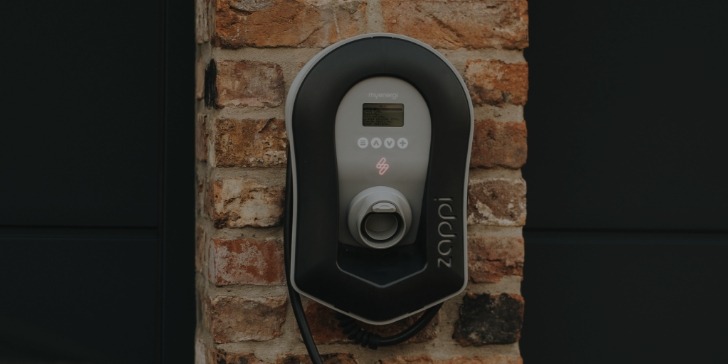What is the difference between tethered and untethered EV chargers?
As an electric vehicle (EV) owner or potential owner, you’ll likely be exploring home charging solutions for added convenience. With a variety of options available, it’s important to understand the differences between tethered and untethered chargers to determine which one best suits your needs. At myenergi, we’re here to provide you with a comprehensive guide to make an informed decision on the ideal home EV charger for you.
Tethered vs. Untethered Chargers: The Key Difference
The primary distinction between a tethered EV charger and untethered EV charger lies in the charging cable. Tethered chargers feature a permanently attached cable, while untethered chargers offer a detachable one.

Is a tethered EV charger more expensive than untethered?
When weighing the costs of tethered and untethered EV chargers, consider that tethered chargers typically cost more upfront, as the cable is included in the price. Untethered chargers are initially cheaper, but you may need to purchase a charging cable separately, potentially minimising the price difference. However, the zappi is the same price regardless of being tethered or untethered making it the perfect solution for both uses.
Is a tethered EV charger more secure?
Tethered chargers are more secure than untethered chargers due to their permanently attached cable, preventing theft. Untethered chargers’ detachable cables are more susceptible to theft, but many models feature added security measures such as pin protection or cable locking. To keep the cable safe, it’s best to disconnect and store it out of sight when not in use.
What is a tethered EV charger?
Tethered chargers are popular among EV owners due to their convenience. Simply unwind the cable from the charging unit and plug it into your vehicle’s charging port, much like using a petrol and diesel pump. The charging cable is included in the unit’s overall cost.
While the convenience is what sways most EV owners to buy a tethered charger, they do have limitations. The fixed cable length can restrict charging flexibility, and compatibility issues may arise if your vehicle requires a different connector type (Type 1 or Type 2).
What are the pros of a tethered EV charger?
- Charging cable included in the unit’s price
- Convenient charging process
- Reduced risk of cable theft
What are the cons of a tethered EV charger?
- Limited cable length provided by the manufacturer
- Restricted to either Type 1 or Type 2 charging connections so if you change your car in the future, you would need to ensure you still buy the same ‘type’ or purchase a new charger.
What is an untethered EV charger?
Untethered chargers, with their detachable cables, offer greater flexibility. They allow you to use your own charging cable or the one that comes with your electric vehicle. This means you can take the cable with you for public charging or accommodate guests needing to charge their EVs at your home.
Despite their flexibility, untethered chargers are less convenient than tethered chargers, as you’ll need to connect and disconnect the cable each time you charge. However, they are more future-proof, allowing you to replace the cable if you need a longer one or a different connector type without purchasing a new charging unit.
Aesthetically, untethered chargers can also appear tidier, as the cable can be disconnected and stored out of sight when not in use.
What are the benefits of an untethered EV charger?
- Easily replaceable charging cable
- Tidier appearance when not in use
- Greater flexibility for charging on the go
What are the drawbacks of an untethered charger?
- Charging cable often sold separately
- Less convenient than tethered chargers
- Potential need for regular cleaning and secure storage

Both tethered and untethered chargers have their pros and cons, so carefully consider your specific needs and usage patterns before making a decision. Replacing a charger can be expensive, so gather as much information as possible to make an informed choice.
Tethered units are generally more convenient for home charging, while untethered units offer increased flexibility, with their detachable cables usable both at home and on public chargers.
Ultimately, the best charger for you depends on your individual preferences, requirements, and charging habits. Take the time to evaluate both options to find the ideal home EV charging solution for your lifestyle.


